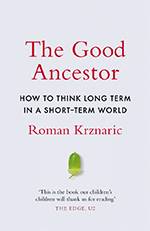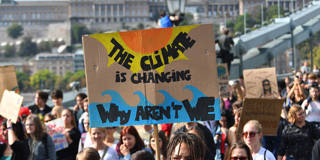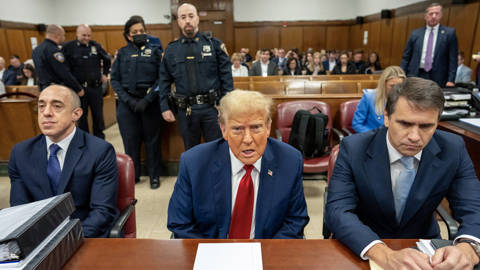Connie Hedegaard
Says More…
This week in Say More, PS talks with Connie Hedegaard, former European Commissioner for Climate Action, and Minister for the Environment and Minister for Climate and Energy for Denmark.
Project Syndicate: Last year, you argued that “if we are to have any chance of avoiding the worst consequences of climate change, Europe must take the wheel – and hit the accelerator.” With the European Green Deal, it seems to be attempting to do just that. As European Commission President Ursula von der Leyen put it in her recent State of the Union address, to fulfill its “mission to become the first climate-neutral continent by 2050,” Europe will “need to go faster and do things better.” Does the European Green Deal’s content back this ambition?
Connie Hedegaard: I think that the intention behind the European Green Deal is clear. So is the direction: the green transition must be integrated into all major economic decisions and investments in Europe. It is thus effectively backed by the full €750 billion ($887 billion) that has been allocated for the COVID-19 recovery effort.
But the proof of the pudding is in the eating. So the big test will be whether the EU institutions will actually manage to enforce their good intentions. For example, when member states request their respective shares of that €750 billion package, will the European Commission hold fast to its principles, insisting that at least most of their spending is in line with Europe’s green ambitions?
PS: The European Green Deal calls for an end to fossil-fuel subsidies, which, as you highlighted in 2013, reached a whopping $523 billion in 2011. Since then, the total spent by European Union governments has declined – to $320 billion in 2019 – though that may mainly reflect lower energy prices. The Green Deal also includes plans to revise the Energy Taxation Directive next year, targeting tax exemptions, in particular. Which revisions are crucial, and how can political resistance to them be overcome?
CH: In my view, it makes no sense to set ambitious climate targets – such as the European Commission’s plan to reduce the EU’s greenhouse-gas emissions by 55% (compared to 1990 levels) by 2030 – and then continue to subsidize fossil fuels. To achieve the Green Deal’s ambition to end fossil-fuel subsidies, the EU must introduce a clear phase-out plan.
But beyond refusing to reward destructive activities, we must also make them costly. A clear price signal is essential in a market-based economy. Some are afraid of the social implications of introducing, say, a carbon price. But tax reform can help here. Changes to the tax system (such as the elimination of certain tax exemptions) could not only prevent rewarding fossil-fuel consumption, but could also minimize the social disruptions.
PS: Seven years ago, you called for the European Investment Bank, the European Bank for Reconstruction and Development, and the World Bank to help eliminate public support for fossil fuels, by changing their lending policies for the energy sector. At the time, they had all announced reviews of those policies. What progress have these – or other international financial institutions – made in “greening” their lending policies? Have their efforts made a difference?
CH: It is in the investment community that one finds what might be the most encouraging signs that things are changing. For example, the EIB now explicitly aims to serve as the EU’s “global climate bank.” To that end, it is seeking to “mainstream” its climate-bank status across the institution, from financial intermediary standards to project appraisal guidelines. It is also set to build relevant capacities, such as technical advisory capacity.
Given the EU taxonomy entering into force, the investment community is genuinely beginning to change tack, shifting their focus from fossil fuels to green projects. To the extent that “money makes the world go round,” this is a highly consequential development, which is already sending important signals to anyone who wants to do business.

Subscribe to PS Digital
Access every new PS commentary, our entire On Point suite of subscriber-exclusive content – including Longer Reads, Insider Interviews, Big Picture/Big Question, and Say More – and the full PS archive.
PS: In your 2019 commentary, you praised Volkswagen for targeting carbon neutrality by 2050 and announcing plans to produce 22 million electric vehicles over the next decade. In Denmark, you have participated in an initiative focused on fostering more such action by the private sector. What accomplishments has this public-private partnership enabled so far? For others hoping to launch similar partnerships, what are the prerequisites of success?
CH: Denmark’s government established 13 so-called climate partnerships for as many different sectors. Through these partnerships, for the first time, the key stakeholders within a given sector – at CEO level – sat down together to identify how that sector could deliver on the ambitious climate targets that have been established. What could they do by themselves? What barriers would they need to overcome with help from policymakers,? They also identified knowledge or technology gaps that needed to be closed through cooperation.
All told, the effort resulted in a huge number of specific, targeted initiatives that are now being implemented, in both the business and policy arenas. This includes a great many cooperative projects.
And, in fact, therein lies the core principle for anyone attempting to replicate this success: cooperation. In order to tackle such a large-scale transition, effective partnerships – including between the public and the private sector – are essential.
BY THE WAY . . .
PS: The market is not a substitute for state-led strategies to combat climate change. But where such strategies are absent – notably, at the federal level in the United States – what can be done to strengthen incentives (or pressure) for businesses to take voluntary action?
CH: In the US, we have seen some regional initiatives – such as carbon-pricing schemes – that have made a difference. But I believe there is much more that could be achieved through sectoral cooperation, both within the US and globally.
As for pressure to take action, it may first need to be applied by business to policymakers, not the other way around. After next month’s presidential election, the private sector must demand – loudly and clearly – that the new administration take climate change seriously, showing both federal-level and international leadership. Business already has strong incentive to make such demands: effective climate leadership is essential not only for America’s global reputation, but also for US businesses’ future competitiveness.
PS: To return briefly to the European Green Deal, is there anything it misses, or fails to address adequately?
CH: I am sure there is. But, at this point, that is less important than ensuring that what it does include is implemented. That alone would be a major step forward, and an inspiration to the rest of the world.
PS: As important as European-level action is, it’s not everything. Even if Europe reaches net-zero emissions soon, averting catastrophic climate change will require tremendous strides elsewhere. And yet, while “most people acknowledging that the recovery after the COVID-19 should be green,” you note in a recent commentary, “most government and business investments are directed towards restoring yesterday more than in creating the needed innovation for tomorrow.” Overall, do you think the pandemic – and the recession it has triggered – will accelerate or impede progress toward a zero-carbon future?
CH: The latter outcome is certainly a risk, but I believe the former is more likely. Already, the COVID-19 crisis has shown that change is possible, especially when the private and public sectors work together. And it has affirmed that political leaders are rewarded for daring to lead.
To some extent, post-pandemic change – in value chains, re-shoring, business travel, telecommuting, and even social values – is unavoidable. We will have no choice but to re-think business as usual. From a climate-action perspective, that is a golden opportunity, which we cannot afford to waste. Building back better and greener is simply good economics.
PS: In 1984, after studying literature and history, you became the youngest-ever Danish MP. Then you left politics and spent 14 years as a journalist, before returning to government in 2004 as environment minister. Can you foresee a time when you will decide to start a fourth act in your career?
CH: What I’m doing now – working as a board member in many different organizations – is, in a sense, a fourth act. Such work affords me the opportunity to combine what I have learned in my previous jobs, as I work to change things from many different platforms.
Hedegaard recommends
We ask all our Say More contributors to tell our readers about a few books that have impressed them recently. Here are Hedegaard's picks:
-

The Good Ancestor: How to Think Long Term in a Short-Term World
by Roman Krznaric
The title of this book says it all. Krznaric offers six methods for expanding our time horizons, so that we can confront the long-term challenges we face, such as the climate crisis. I strongly recommend it.
-

To the End of the Land
by David Grossman
This novel – one of the best I have read the last decade – stays with you long after you turn the final page. It is about love; it is about war; it is about family; it is about life. And it is extremely well written, by an Israeli author who himself lost a son to war.
From the PS Archive
From 2013
Hedegaard condemns governments’ self-defeating energy policies, which subsidize the polluters and fail adequately to invest in renewables. Read more.
From 2019
Hedegaard urges Europeans to embrace the green transition as the basis of a new shared narrative. Read more.
Around the web
In a 2018 interview with Sustain Europe, Hedegaard assessed the climate-policy status quo – and proposed ways to kick-start progress. Read the transcript.




